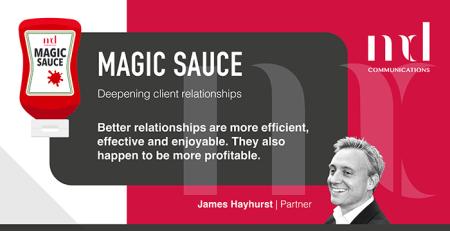The startup is often feted as the future of the business world. At the same time we are constantly made aware that, statistically, a large proportion of startups will eventually fail. So, startups represent both great potential and a lack of permanence.
Most new businesses generally suffer from a lack of financial backing and/or long-time experience and expertise – two things the established legal sector tends to have in abundance. However, startups benefit from fresh perspectives, a willingness to try new methods and infrastructure, as well as resourceful talent when more established businesses find these difficult to access and implement.
As a firm focused on the legal sector, MD Communications has had the privilege of working with a number of new law firms that would probably fall into the category of a startup.
While the legal sector is often viewed as somewhat static and staid, these firms are a great example of how startups are helping to change the rules of the modern working world.
So, what insights do these new firms – and other startups outside law – have to offer to an ever-changing legal industry?
Startups are agile
Of course ‘agile’ has become a vastly overused word in modern business but there’s no escaping the fact that startups are lean business machines, less wasteful and more responsive than big corporate beasts that have had years to get mired down in admin and infrastructure.
There’s a lot we can learn from practices such as remote and flexible working, early tech take-up and hot desking. We recently worked with several new firms that are already achieving prominence without the traditional legal infrastructure of expensive City office space and onerous schedules. Flexible hours, remote working and co-working spaces provide resources as and when required and allow the teams to be leaner, more effective and more in control of their schedules.
Insight: there’s no reason why businesses selling legal services shouldn’t be as agile in structure and approach as sectors such as tech or retail. Change doesn’t have to be dramatic – even small steps can make a difference.
Startups find market gaps to fill
A friend of mine is the founder of a fashion startup called The Glass Pineapple. She began the business out of frustration at never being able to find fashion she wanted to buy – clothes from unknown designers and emerging labels that didn’t cost an arm and a leg, and which she didn’t have to spend days trying to track down online. Emerging designers existed, catwalk shows existed, fashion retail existed – but not all working together in the same place.
And so The Glass Pineapple has grown into a community with a social following of 10k and insider status at London Fashion Week and fashion weeks all over the world. The business is currently looking for seed funding (get in touch any potential Angel investors out there).
The funding will enable them to open an online shop selling the designers and labels they have discovered, combining these finds with the kind of quality customer experience that new labels could never offer on their own. Fresh talent meets sophisticated UX. In such a high-value market as fashion you’d have thought all gaps were covered by the big players but this brand is proof that it’s not the case.
Insight: even overcrowded marketplaces still have gaps to be found and filled. Sometimes a business or service innovation comes not from inventing something totally new but bringing two existing elements together.
Startups evolve
Many new businesses hit what could be defined as ‘success’ in a completely different format to the vehicle they started out as. Sometimes the period of time in which this happens is relatively short – challenges arise, ideas don’t work, projects fail and startups must, phoenix-like, take on a new incarnation that leaves behind the dead wood and progresses and develops what works.
In the legal sector we have had stability and structure for decades – perhaps until the Legal Services Act introduced alternative business structures. Now, we’re in a period of flux where the legal sector of the future could look very different to that of today – those businesses that evolve as a startup could well be the ones that win. Those that can’t leave behind entrenched but inefficient practices and processes could suffer as a result.
Insight: jettison what isn’t working, even if you’ve been doing it for years. Embrace new tech, social media, cutting edge digital marketing and fresh business concepts – the likelihood is that clients are doing this too and will want advisors who can pioneer or, at the very least, keep up.
While startups have plenty of issues – and many will fall by the wayside – they are a perfect example of unencumbered business. From catwalks to conference rooms, any professional environment could potentially benefit from a bit more startup mentality.












